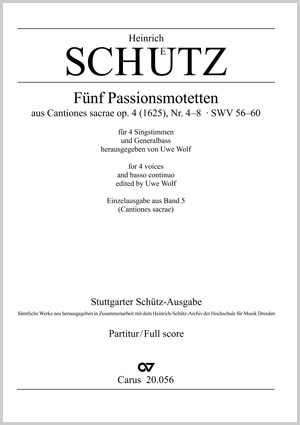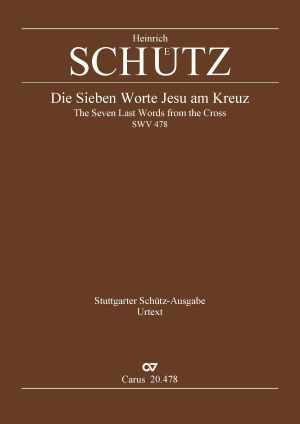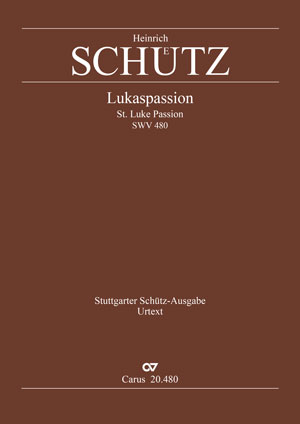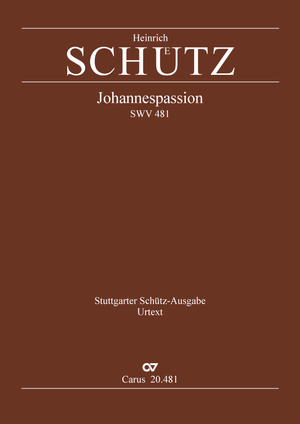
Motets for Passion
aus: Cantiones sacrae, Op. 4 SWV 56-60, 1625
Five Latin motets for Passion from the Schütz Cantionaes sacrae's edition, op. 4, from 1625. In the proven tradition of the Stuttgart Schütz Edition. “The edition is clear and superbly printed. An absolute must for choirs who already have experience with the music of Schütz.”
Purchase
Additional product information
Contents
-
Composer
Heinrich Schütz
| 1585-1672Heinrich Schütz is regarded as the first German musician of European stature. As a choirboy from 1599 at the court of Landgrave Moritz of Hessen-Kassel, he received a thorough education. In 1608 he began a law degree in Marburg, but broke this off in 1609 in order, with the support of the Landgrave, to study composition with Giovanni Gabrieli, organist at St Mark’s in Venice. In 1613 Schütz returned to Kassel, but two years later was enticed away by Elector Johann Georg I of Saxony to the Dresden court as “Organist und Director der Musica”, where he held the position of Hofkapellmeister (court Kapellmeister) from 1617 until his death. Schütz’s great cycles of vocal works marked the high point of his reputation in Germany and northern Europe. But these represent only part of Schütz’s output; individual works are represented in printed collections with works by other composers, others only survive in manuscript, and much has been lost. The Stuttgart Schütz Edition makes available Schütz’s complete oeuvre, and all works are also published in practical Urtext editions. Personal details
-
Editor
Uwe Wolf
| 1961Uwe Wolf studied musicology, history, and historical ancillary science at Tübingen and Göttingen. After receiving his doctorate in 1991 he was a research assistant at the Johann-Sebastian-Bach-Institut in Göttingen. From 2004 he worked at the Bach-Archiv Leipzig. There he directed a both research departments, was substantially responsible for the redisigning of the Bach Museum, and he developed the digital Online-Projekt Bach. Since October 2011 he has been the Chief Editor at Carus-Verlag, Stuttgart. He has taught at various universities and also belongs to the editorial boards of several complete editions. Personal details
Reviews
Heinrich Schütz: Aus den Cantiones sacrae Op
Heinrich Schütz: Aus den Cantiones sacrae Op.4, Nr. 4-8
In einer hervorragenden Neuausgabe liegen hier vier „Cantiones sacrae” von Heinrich Schütz vor („Quid commisisti”, „Ego sum tui plaga doloris”, „Ego enim inique egi”, „Quo, nate Die”, „Calicem salutaris accipiam”). Über die Qualität dieser einzigartigen Musik brauche ich hier nichts zu schreiben. Die Edition ist mit einer Generalbassaussetzung von Paul Horn versehen. Die Ausgabe ist sehr übersichtlich und hervorragend gedruckt. Für Chöre, die bereits Erfahrung mit Musik von Schütz haben, ein unbedingtes Muss!
Quelle: Musica Sacra November/Dezember 2000, S. 36
Frequent questions about this work
 There are no questions and answers available so far or you were unable to find an answer to your specific question about this work? Then click here and send your specific questions to our Customer Services!
There are no questions and answers available so far or you were unable to find an answer to your specific question about this work? Then click here and send your specific questions to our Customer Services!









